Updated: This article was updated on March 23, 2023 at 10:30 p.m. CDT to include a comment from Vanderbilt College Republicans President Shane Mumma.
The Hustler hosted a debate on March 21 with the 2023 VSG presidential and vice presidential candidates ahead of the March 27 election. Three tickets are running for the roles: juniors Ari Sasson and Shreya Gupta, juniors Sam Sliman and Kendelle Grubbs; and junior Macy Su and sophomore Lonnie Smith.
Each ticket answered nine questions, including five general questions and one student-submitted question asked to all tickets and three campaign-specific questions. Responses could be a maximum two minutes long per ticket per question, after which time was called.
General questions
The debate started by campaigns providing the audience with a brief summary of their platforms. Sasson and Gupta said their platform — abbreviated to “M.O.R.E.” — includes a number of issues centered on mobility, opportunity, representation and equity. Specifically, they are advocating for a living wage for construction workers and dining workers on campus and adding seats for representatives from the Multicultural Leadership Council to the VSG Senate. Gupta added that mobility and off-campus access are critical to their campaign.
“We want to make it easier for students to get in and around campus and engage with the Nashville area,” Gupta said. “That includes Broadway, coffee in all the dorms to get you started throughout your day and improving the Rec.”
Sliman and Grubbs explained that their campaign was “more of a collection of loose points,” which includes advocating for “breaking up Stevenson” and building a wall between Belmont University and the Vanderbilt campus. They also called for VUPD to be replaced with exclusively canine units.
“After that, we’re going to try to put a woman on the moon by 2025,” Sliman said. “There hasn’t been a woman on the moon yet and frankly we can’t stand for that. Unfortunately, we don’t have any plans to get her back down.”
Su and Smith said that their campaign — abbreviated to “S.E.R.V.E.” — are sustainability, equity, resources, voices and experience. They highlighted improved recycling and composting, extended Vandy Van service and airport shuttles and more dedicated spaces for prayer and meditation on campus.
“Sometimes you just need a quiet space to eat lunch or a place to go to pray,” Smith said. “We just want to make sure that we’re doing all that we can to extend all of our resources to our students.”
The candidates then explained how their past experiences in campus leadership would help them in office. Sasson, who currently serves as VSG vice president, and Gupta, who serves as VSG diversity and inclusion committee chair, highlighted some of their past initiatives, such as VSG’s student activism fund and D&I Dialogues event with FirstVU and Questbridge. Sasson added that the pair have taken “great strides” to internally reorganize VSG during his current term as vice president.
Neither Sliman nor Grubbs have experience on VSG, but they said their roles outside the organization allow them to address the “disillusionment” with VSG. They also drew attention to their positions as editors on the Slant, stating that this experience helps them to understand the issues faced by the student body.
“Given that they’re [students] so unhappy with the state of things and generally believe it to be ineffective, we think that an outsider perspective can maybe help change that,” Sliman said.
Smith, who currently serves as the VSG director of active citizenship and service, said he was proud of his past VSG initiatives, such as VSG’s Angel Tree fundraiser for Metro Nashville Public Schools. Su, who currently serves as VSG’s chief of staff, said she has served in every branch of VSG in her time at Vanderbilt.
“I think it has offered me an opportunity to see the entire organization from a bird’s eye perspective,” Su said.
Candidates also addressed how they will ensure that VSG initiatives are advanced by university administration.
Having worked in VSG this year, Sasson and Gupta said they understand the administrations’ limitations regarding working with students. They added that their campaign focuses on policies that are achievable and possible, a practice they would continue in office.
Su and Smith similarly emphasized a principle of “collaboration without compromise” when working to represent student needs to administrators.
Sliman and Grubbs said students should focus on building communities for one another, disregarding whether administrators may be willing to collaborate on particular issues.
“I think the point is that we don’t actually care about what the administration wants and whether they’re going to do it,” Grubbs said. “We shift to making this a community that even if the top people don’t care, the majority of people care.”
Next, candidates discussed how they would work with outgoing VSG leaders if they were elected, following prior allegations that administrations deleted the contents of the VSG Google Drive prior to turnover. Each campaign emphasized the need for transparency and for conversations between incoming and outgoing leaders during turnover.
After some campaigns were suspended for campaign violations during the 2022 and 2021 elections, candidates explained how they intended to run a fair and friendly campaign. All three campaigns said they want this election to avoid “toxicity” and aim to promote their ideas without disparaging other campaigns.
Finally, the general portion of the debate ended with candidates answering a student-submitted question about how candidates intend to support LGBTQ+ students on campus. Tennessee recently passed laws banning public drag performances and gender-affirming healthcare for minors.
Su and Smith said VSG should represent every member of the student body and that they would focus on taking care of all students. Su added that, if elected, the pair would dedicate VSG funds toward transportation for students to attend related events and encourage their members to volunteer with organizations advocating against anti-LGBTQ+ legislation.
Sasson pointed to the VSG Student Activism Fund as a potential source of support for LGBTQ+ students and allies and referenced a recent guest editorial he wrote in The Hustler “pushing back” on the university’s stance of “principled neutrality” on such issues. Gupta added that she currently interns at the Tennessee Statehouse and has observed the passage of the legislation firsthand.
Sliman and Grubbs said a large part of supporting LGBTQ+ students is making sure that they feel that Vanderbilt is a safe space. Grubbs pointed to a Vanderbilt College Republicans debate on the availability of gender-affirming care for minors scheduled for April 4, stating that such events can make LGBTQ+ students feel unsafe and put their identities “up for debate.”
“Are we potentially opening up the space for bigotry? That’s being hidden under the idea of fair debate of academic prowess,” Grubbs said.
VCR President Shane Mumma said that he was disappointed by Grubbs’ comment and urged “students who support free speech and civil dialogue” to vote against candidates who “denounce debates.” Mumma added that VSG funded the food provided at VCR’s last debate, along with advertisements for the event, and encouraged candidates to attend the upcoming debate.
“We’re all deeply saddened that a VSG candidate would choose to use her platform to attack our incredibly active club here on campus, especially our immensely successful debate series that has brought people of all political views together to vigorously and civilly discuss the day’s most controversial issues,” Mumma said in an email to The Hustler. “VSG should be used to bring the student body together, not as a means of campaigning against entire student groups like ours.”
Candidate-specific questions
Sasson and Gupta were asked about their platform point regarding expunging student records of COVID-19 policy violations. Sasson said he was “least sure” about accomplishing that specific platform point, though he said he and Gupta would do their best to work with administrators on the topic.
“We don’t think it’s fair to students to have to have gone through that [the COVID-19 pandemic], gone through school and not be able to make friends in a non-virtual matter,” Sasson said.
Sasson was also asked about his campaign promise this past year to establish a Vandy Van route to Broadway. He said the reduction in the number of Vandy Vans made the proposition infeasible this year. However, he explained that he is currently in communication with Director of Mobility Michael Briggs about using the new electric Vandy Vans for transport to Broadway for certain events. Sasson added that the Transportation and Mobility Office has already signed off on a bar crawl route using the WeGo bus transit system.
In response to a questions about how he and Gupta plan to further subsidize graduate school applications, Sasson cited the pre-existing Adriel Bineza Graduate and Professional School Application Assistance (GAP) Fund, through which VSG and the Office of the Provost provide a combined $30,000 in assistance distributed in $400 increments this academic year. Sasson said he worked on a proposal with VSG academic affairs committee chair Tanya Iyer that will increase the funding by $100,000 up to a maximum of $432,000 for next academic year.
“The one tangible step that we’ve made this year is the Provost Office agreed to add the GAP Fund as an option for Vanderbilt’s Day of Giving, so we’ll be able to get more money into that,” Sasson said. “Additionally, we’re collecting student testimonials to hear how every student has used the fund this year, if they can use more funds, and we’ll use a feedback-based approach to hopefully benefit more students next year.”
Sliman and Grubbs, whose campaign advocates for “dissolving VSG,” were asked about the “unfeasible” and “dangerous” policies they proposed, including jailing boosted board and e-scooter users, banning athletes and calling Belmont students “cretins.” Sliman assured the audience that these policies were part of his and Grubbs’s “joke campaign.” Grubbs added that she and Sliman’s platform includes some serious focuses, including using VSG resources to better serve the wider Nashville community.
“I think a lot of times that we just turn a blind eye towards what all the university can do for this community. This place is such an insane bubble of privilege that like a lot of times it can be lost,” Sliman said. “The fact is that we’re part of a much larger community with much larger issues. I believe that we have somewhat of a right to give back to that community.”
Sliman and Grubbs were also asked how they plan to work with people they have made negative comments about, such as Belmont University students and student-athletes, and the broader Vanderbilt/Nashville community in an effective and respectful manner.
After the debate, Sliman said this question took him by surprise.
“I didn’t actually get a chance to edit our platform summary before we submitted it. So, she [Grubbs] wrote that herself, and I had forgotten bits of it, so I thought that they [The Hustler] were just making up those things that we had said,” Sliman said. “I didn’t realize until halfway through, I was like ‘oh wait, we actually did say those things.’”
Su and Smith were asked about their pledge to mandate at least one mental health day per class as an excused absence and restructure course registration. Su explained that mental health days would differ from reading days; and instructors would not be allowed to hold class, there would be no assignments due and extracurricular activities would not hold meetings. Smith added that, if elected, he and Su would work to overhaul course registration by collaborating with the Office of the Registrar to add seats to classes and increase transparency around the registration process.
“I know I’ve had a poor CASPAR experience as a lot of A&S students have. I think working with our CASPAR advisors and administration to make the A&S experience specifically, again coming from my experience, more equitable and fair for those students is something that we would love to work towards, and then also extending that to the other areas of campus,” Smith said.
Regarding their platform point to uplift student voices and collaborate with campus organizations, Su emphasized the importance of voice in carrying over to the rest of their platform points. She said members in the Black Student Association and Caribbean Students Association expressed interest in having VSG co-sponsor their events and, if elected, aims to optimize VSG’s budget to support student organizations and initiatives.
“We’ve been able to donate over $20,000 each semester so far to student organizations and their events, so that is one way we are trying to uplift student voices currently within VSG and something we will totally continue to do next year,” Su said.
Audience reactions
Senior Mark Raj said the candidates’ focus on their platforms was more emphasized than in previous elections, though that makes him wary of candidates overpromising on their policy. He also expressed appreciation for the candidates’ apparent desire for a “safe and clean” election.
“This feels like the first election that might actually be decided on policy instead of personality,” Raj said. “That being said, that also makes it woefully obvious that each candidate is making promises far more than they can expect to keep, and I’d like to have each define the things they really think are attainable and their biggest priority.”
First-year Ellie Armstrong called the debate “enlightening” and said the opportunity to hear each ticket’s platform and ideas was helpful, especially as a new student at Vanderbilt.
“On Fizz and [other social media platforms], I saw so many particular things like ‘oh, this candidate did this, this candidate did that, vote for these people.’ Just from word of mouth, especially as a freshman who doesn’t know many of these people, I had very narrow-minded preconceptions coming in,” Armstrong said. “But hearing people articulate about their platforms was really useful.”
First-year Laura Caroline Jung echoed Armstrong’s comments, adding that she was surprised by the prior VSG experience of many of the candidates and the intentionality of their platforms.
“The one thing that I was surprised about the most, being a freshman, was how continuous the presidential campaigns are with their existing roles in VSG,” Jung said. “I was very impressed by how the presidential and vice presidential candidates are making sure that they’ve already taken strides and made efforts to check the feasibility of the propositions before promising them to the student body.”
Armstrong also reacted to the Sliman/Grubbs campaign with appreciation for their satire.
“[The Sliman/Grubbs campaign] provided some fun to this otherwise serious environment,” Armstrong said.
Candidate reactions
Sasson said he believes the debate was helpful for the audience in getting to better know each candidate.
“I think the audience got to hear a more personal side of each of the campaigns than of just literal printed materials or Instagram graphics,” Sasson said. “I think it went very well for all three campaigns. We got to share issues that resonate with those close to us and gain some perspective about the campus community.”
Gupta praised the debate for allowing each ticket to authentically share their platforms.
“I feel like all the candidates were able to convey their platforms effectively,” Gupta said.
Su said she believes the debate provided more insight into who she and Smith are as individuals and allowed them to connect with the audience.
“This debate honestly just shined some light as to who the candidates are: You can only show so much through social media,” Su said. “I think it really is to shed some light on who Lonnie and I are, who the other candidates are and then put a face to some names and connect with students on a face-to-face level to see exactly how we can serve them based on what we have promised to them in our platform.”
Smith said he appreciated the opportunity to hear other candidates’ platforms so, if elected, he and Su can work to implement those ideas next year.
“What’s amazing about this debate is that we’re able to come here together, not only to talk about our points but to collaborate with one another and see what everybody else is working on. If elected, we’re not going to do away with any work that anyone else is trying to do,” Smith said. “It helps us not only to create more depth in our platform but also to shine a path on where we need to be going. No matter who was in the initiative, no matter who started it, we want to do what’s beneficial.”
Grubbs reflected on the feasibility of other candidates’ platforms, as she believes that they repeated ideas she has heard people suggest many times before with no success.
“This is still VSG, and this is still another election. Trying to hear platform points over and over again and just remembering the infeasibility of it over and over again is a little bit disheartening,” Grubbs said.

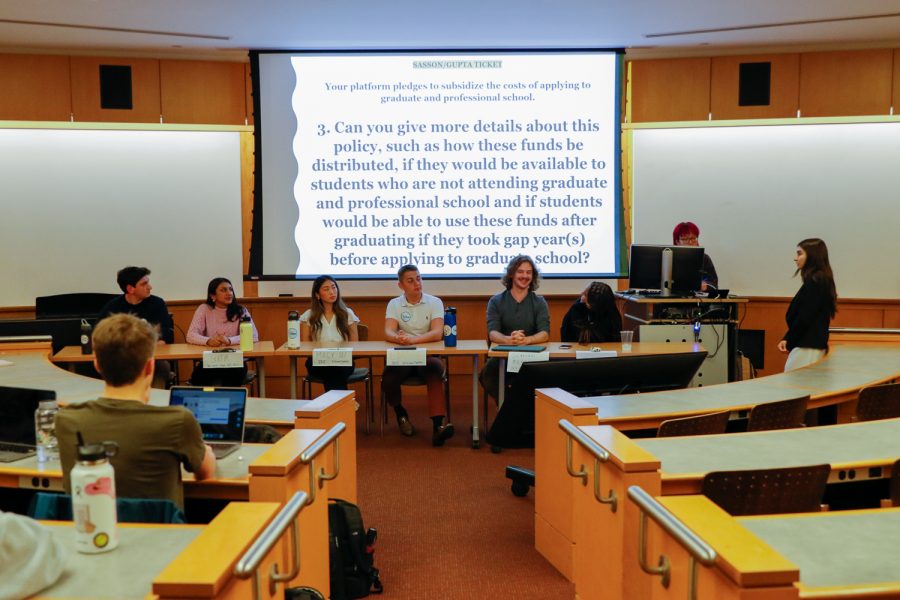


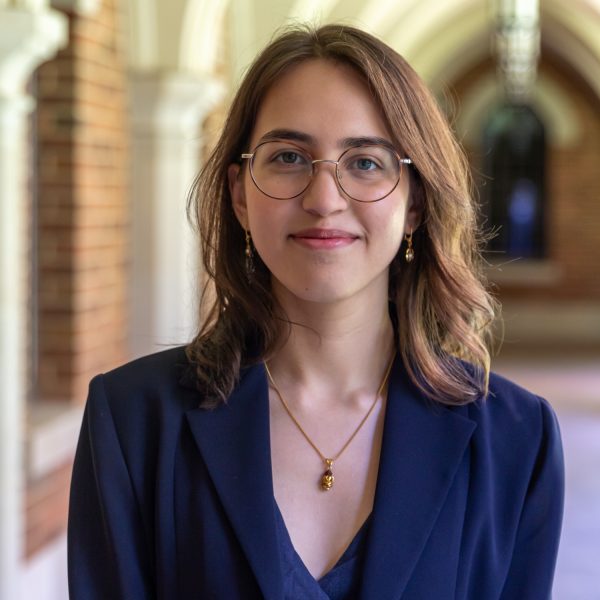

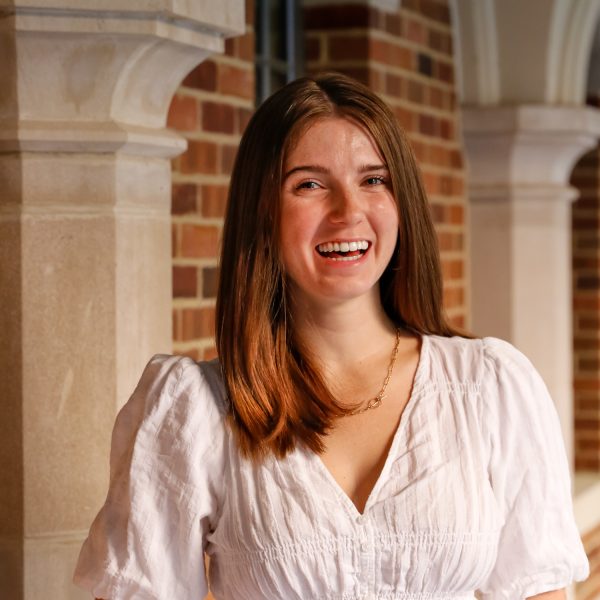
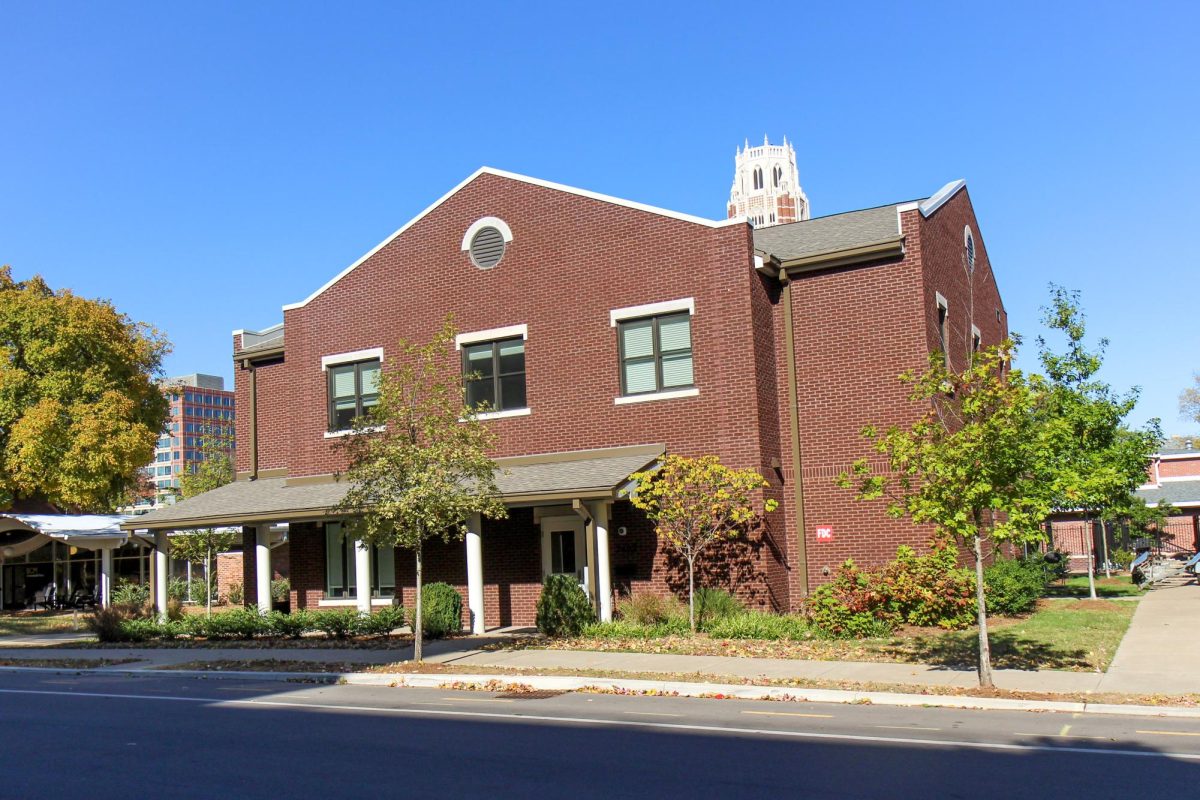
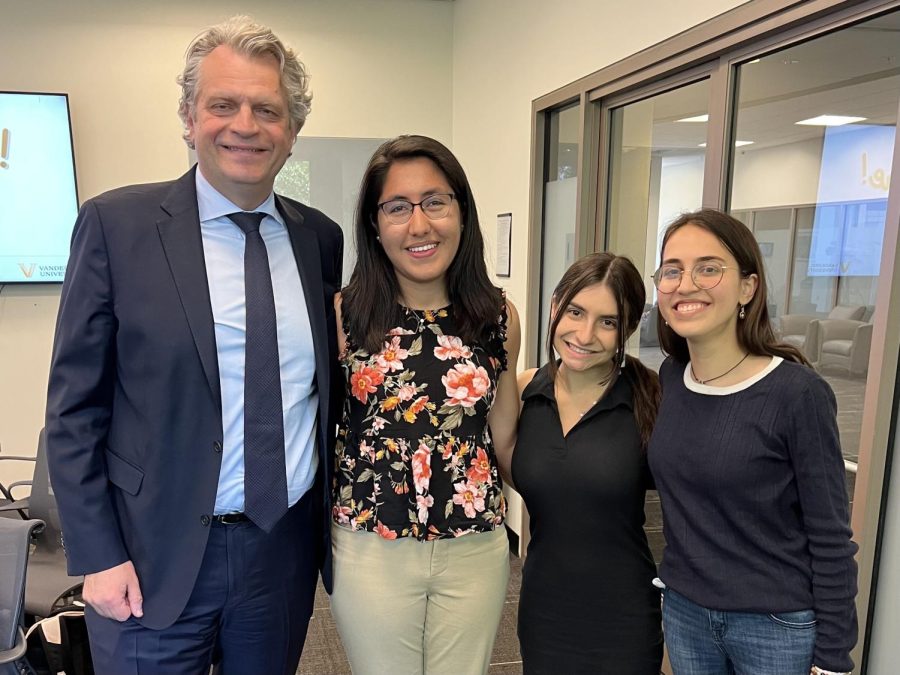
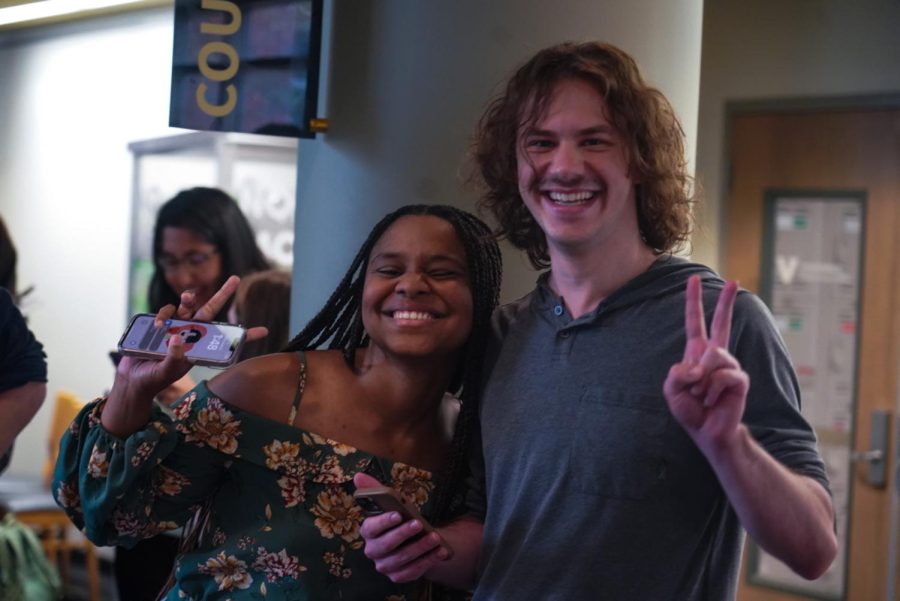
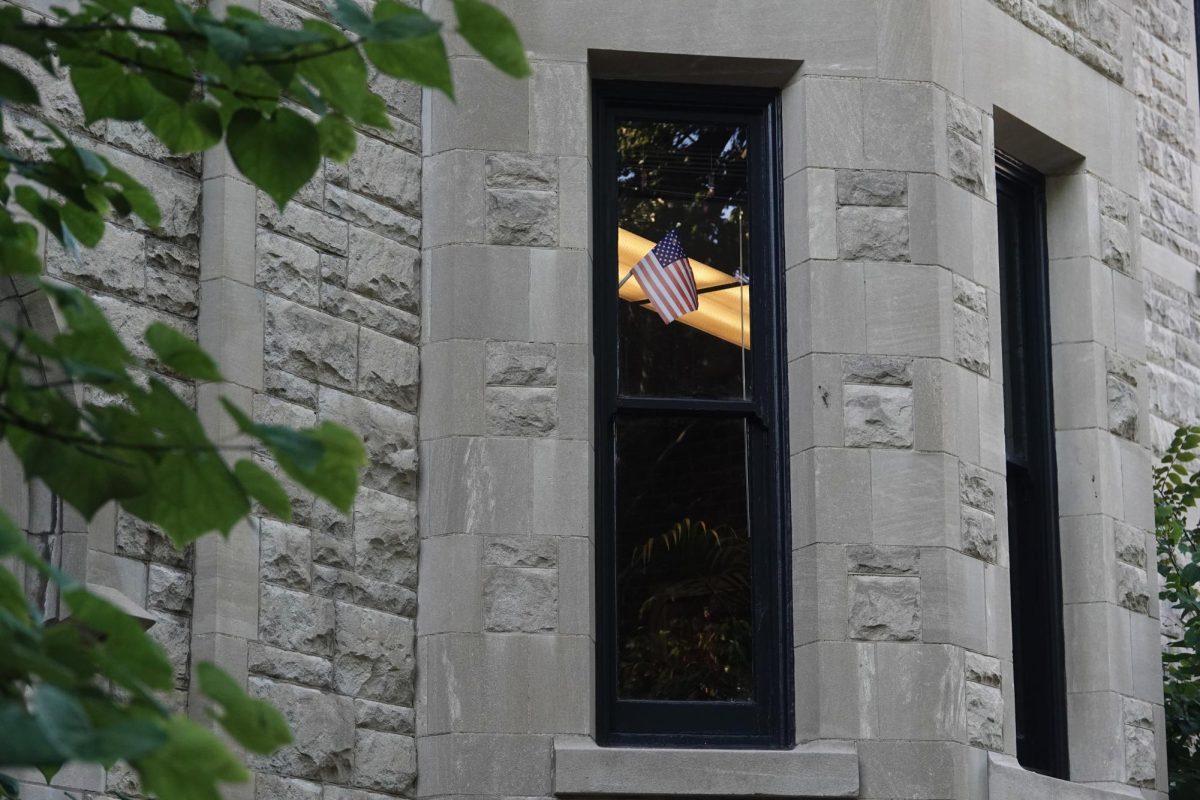
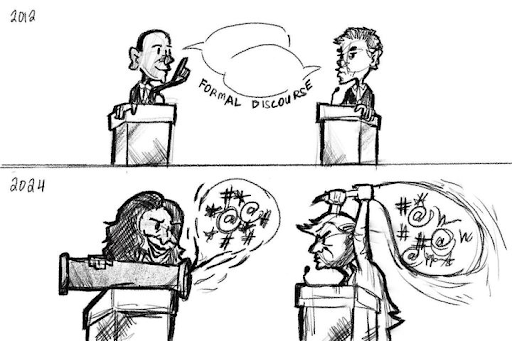

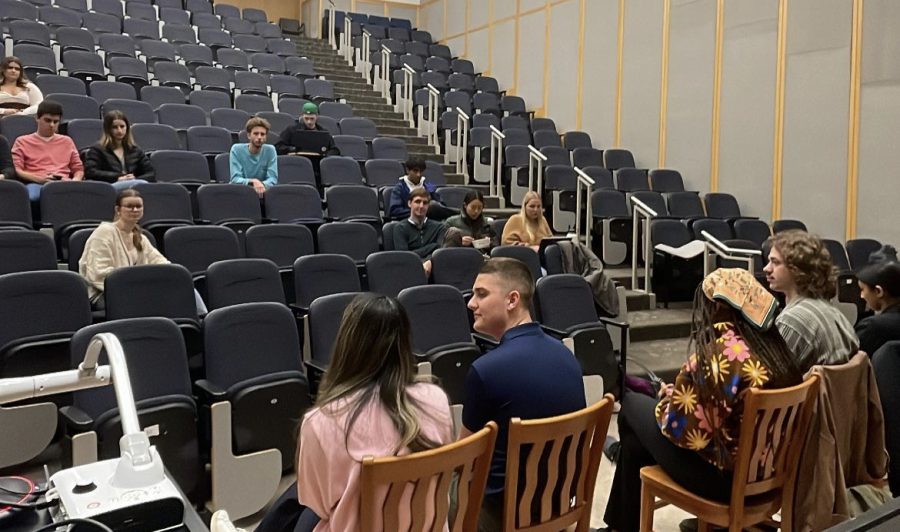
Jessica VU 95 • Mar 22, 2023 at 3:29 pm CDT
A candidate that would run against DEI and for individual merit would do quite strong